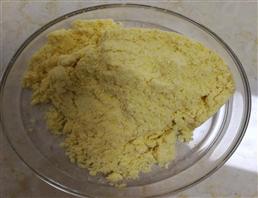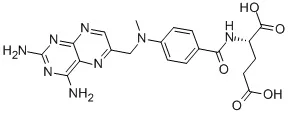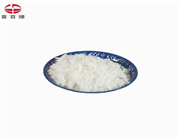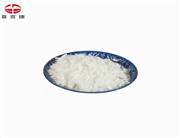Methotrexate is a drug used for the treatment of cancer, also known as cytotoxic drugs. In order to reduce its cytotoxicity, it can be used in conjunction with calcium leucovorin. It is primarily used for the treatment of acute leukemia (acute lymphocytic leukemia), breast cancer, malignant mole and choriocarcinoma, head and neck cancer, bone cancer, leukemia, spinal cord meningeal infiltration, lung cancer, reproductive system cancer, liver cancer, refractory psoriasis vulgaris, dermatomyositis, body myositis, ankylosing spondylitis inflammation, Crohn's disease, psoriasis and psoriatic arthritis, Behcet's disease and autoimmune disease. In Rheumatic Arthritis:
Methotrexate is an immunosuppressant and can be used for easing the process of rheumatism with a particularly excellent efficacy in treating synovial inflammation of rheumatoid arthritis and is the most frequently used drugs for treating rheumatoid diseases.
· Methotrexate (MTX), is one of first line DMARDs(disease-modifying antirheumatic drugs).The order of agent selection is not clearly defined, but MTX is often chosen initially because long-term data suggest superior outcomes compared with other DMARDs and lower cost than biologic agents.
· MTX inhibits cytokine production and purine biosynthesis, which may be responsible for its antiinflammatory properties. Its onset is relatively rapid (as early as 2 to 3 weeks), and 45% to 67% of patients remained on it in studies ranging from 5 to 7 years.
· Toxicities are GI (stomatitis, diarrhea, nausea, vomiting), hematologic (thrombocytopenia, leukopenia), pulmonary (fibrosis, pneumonitis), and hepatic (elevated enzymes, rare cirrhosis). MTX is contraindicated in pregnant and nursing women, chronic liver disease, immunodeficiency, pleural or peritoneal effusions, leukopenia, thrombocytopenia, preexisting blood disorders, and creatinine clearance <40 mL/min.


 China
China


